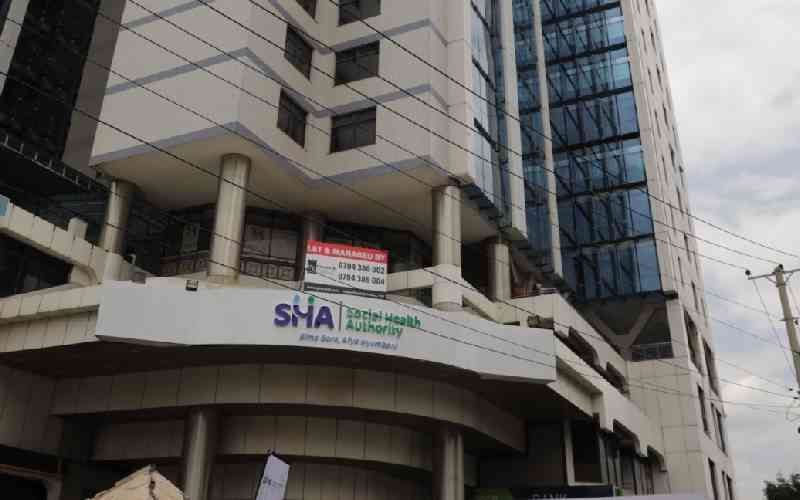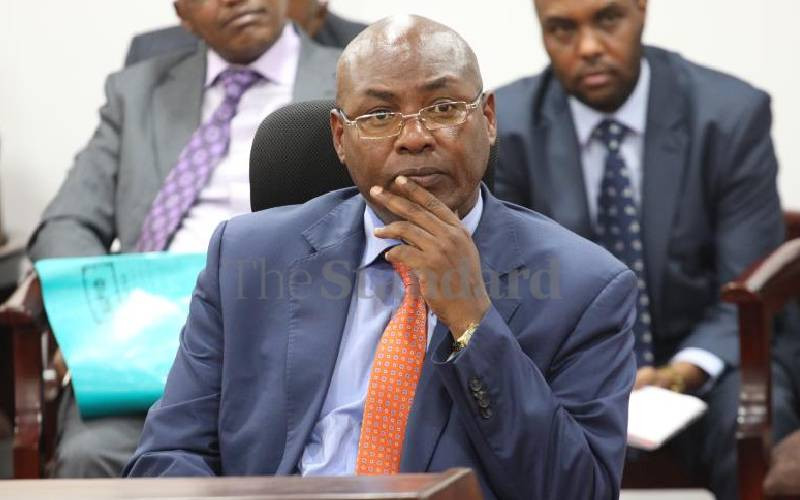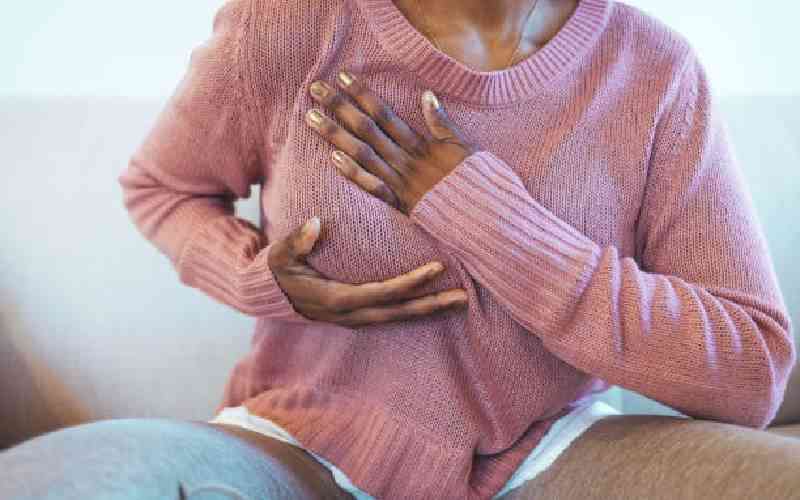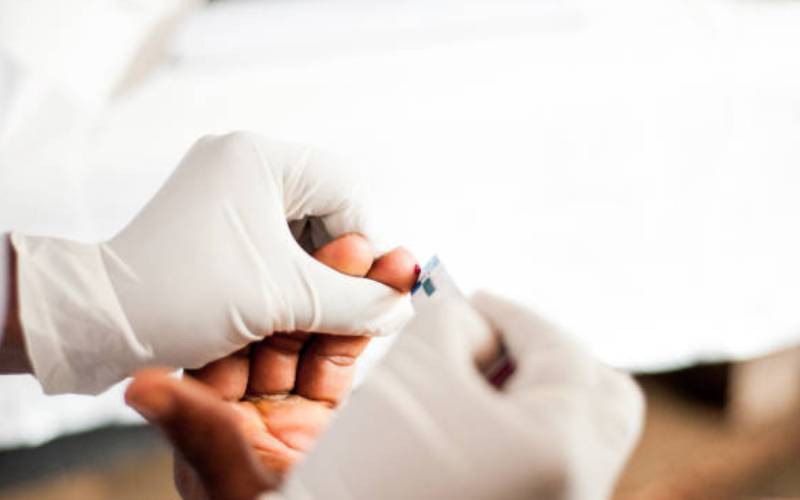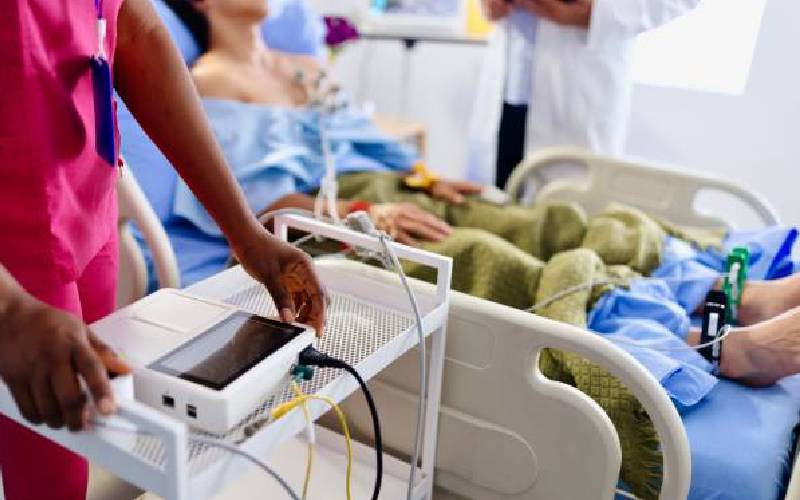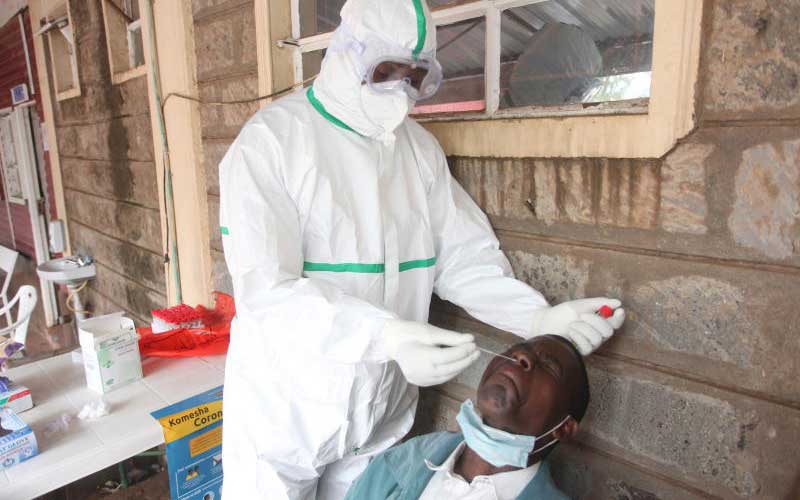
A targeted mass testing for coronavirus at Kibra, Nairobi in October 17, 2020. [Wilberforce Okwiri, Standard]
Testing of Covid-19 across the country has been hampered by acute shortage of reagents that has forced counties to scale down collection of samples.
Most of the counties have been forced to take samples to laboratories in Nairobi.
Kenya Medical Research Institute (Kemri) Kericho and Kemri Centre for Disease Control (CDC) in Kisumu are among the laboratories experiencing shortage of reagents and testing kits.
In Kericho, swabs for Covid-19 tests are extracted from sick people, who present themselves to hospitals for documentation. The samples are then stored in hospital freezers as the county waits for supply of reagents.
“Contact tracing and surveillance are ongoing, but we are not conducting tests. Those willing to have samples extracted have to wait longer,” said Kericho County Director Health Betty Lagat.
Nakuru County has been taking samples to International Livestock Research Institute (ILRI) in Nairobi.
The county has been forced to restrict testing to those who present themselves at hospitals, and their contacts.
Director of Public Health Elizabeth Kiptoo said the county started to restrict testing on the advice of Kemri laboratories in Kisumu.
Initially, the county had rolled out targeted testing to flatten the Covid-19 curve following increased infection rate.
“Our sample collection has been scaled down. We are no longer meeting the masses because we do not want to have accumulated samples that are not tested on time,” said Ms Kiptoo.
Last week, for instance, it took the county six days to have 393 samples tested at ILRI in Nairobi.
Sample storage
Baringo County, which has cumulative 82 cases, is collecting and storing samples at Kabarnet County Hospital.
The county’s epidemiologist Robert Rono said they resorted to storing the samples after Kemri Kericho, Kisumu and Moi Teaching and Referral Hospital scaled down sample collection.
“Samples collected are frozen and when reagents are available, we take them for testing in various laboratories,” said Dr Rono.
An October 31 report by the Ministry of Health indicated a shortage of testing kits and reagents.
Among affected facilities was Kemri Alupe in Busia County, where testing machines experienced breakages, reducing testing capacity from 400 to 50 samples every day.
Last week, a Ministry of Health report on the Covid-19 situation showed that Kemri Centre for Disease Control in Kisumu had stopped receiving samples from Busia and other neighbouring counties due to a shortage of reagents.
The report showed that most health facilities in Kisumu had been lacking collection kits, with only a few sub-counties having sampling kits.
The report further indicated that Kisumu, Migori and Busia counties were among those that lacked fuel for ambulances, despite recording a spike in infections.
Kisumu Country Director of Health Fredrick Oluoch said erratic supply of reagents was hampering the war against the virus.
“The current situation will erode the gains made in the war against the virus. We are doing all we can to ensure the fight is not crippled,” said Oluoch.
In Kisii, health workers admitted that they did not undertake any Covid-19 sample collections for the better part of last week and early this week after they ran out of test kits.
The county's Public Health Officer Richard Okware however said testing had resumed by yesterday.
“We had delays in receiving kits from the Ministry of Health. We have updated our systems and patients can be tested,” said Dr Okware.
[Mercy Kahenda, Mactilda Mbenywe and Eric Abuga]
 The Standard Group Plc is a multi-media organization with investments in media platforms spanning newspaper print
operations, television, radio broadcasting, digital and online services. The Standard Group is recognized as a
leading multi-media house in Kenya with a key influence in matters of national and international interest.
The Standard Group Plc is a multi-media organization with investments in media platforms spanning newspaper print
operations, television, radio broadcasting, digital and online services. The Standard Group is recognized as a
leading multi-media house in Kenya with a key influence in matters of national and international interest.

